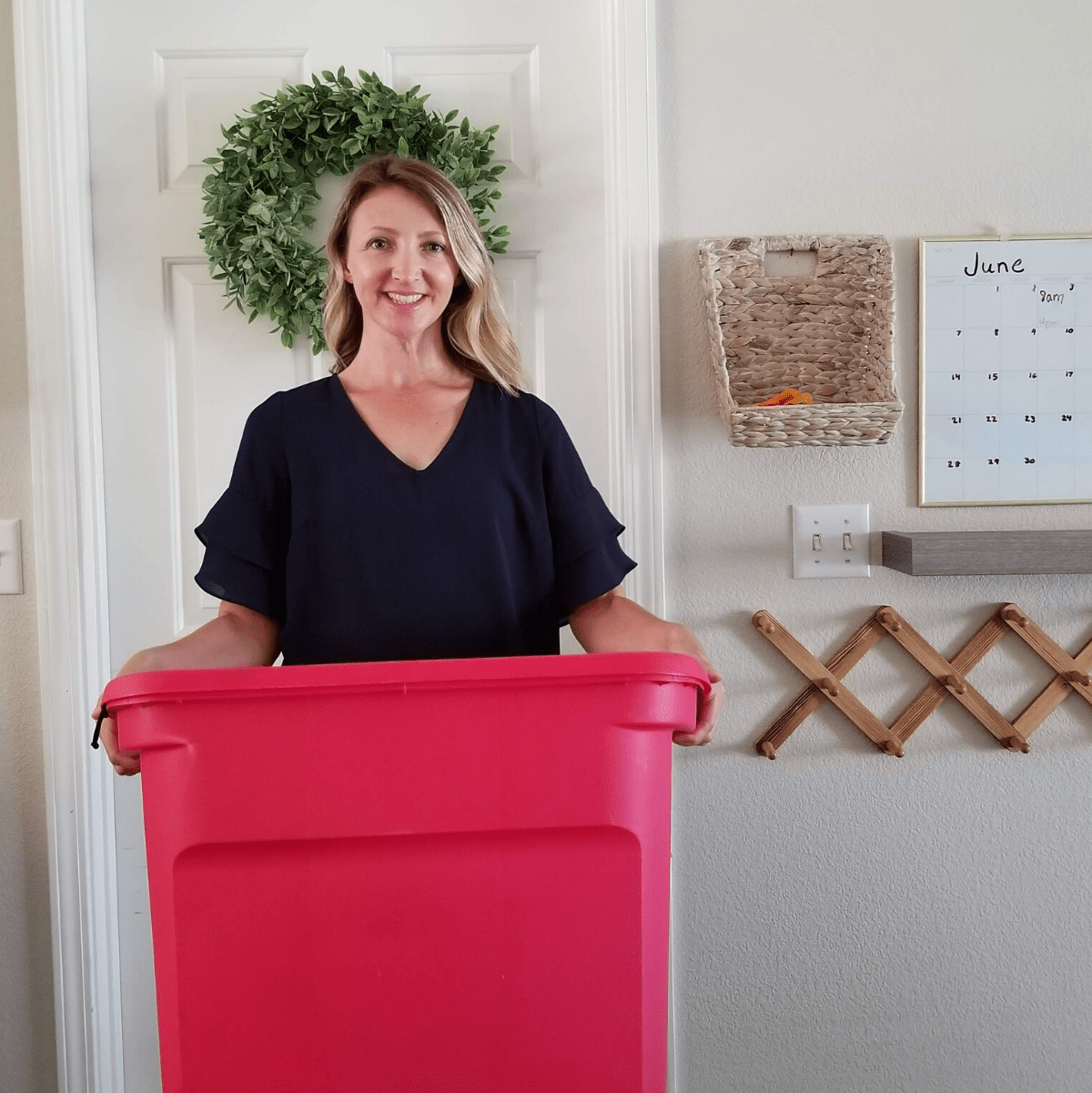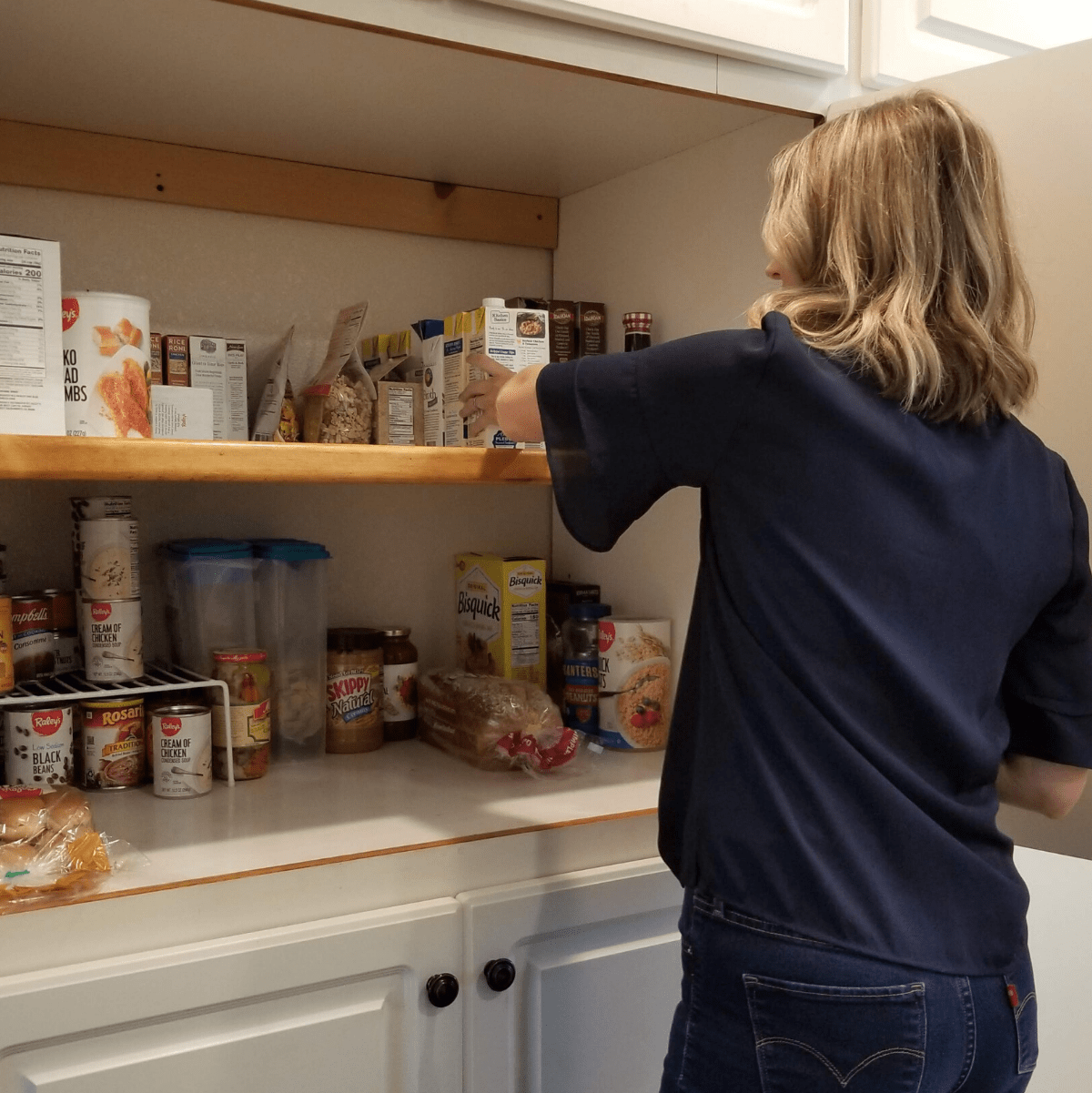How Decluttering My Home Cured My Insomnia
A woman with insomnia reveals how the sleep disorder left her feeling exhausted, depressed and overwhelmed. Then she discovered the simple fix that led to better sleep.

Dealing with sleepless nights
Every night was the same. No matter how tired I was at the end of the day, I would climb into bed, fall asleep, then wake up two hours later and spend the next four to six hours sleepless. My mom had insomnia when I was young that started in her 30s, so when sleep became scarce I just assumed the same was starting for me.
Feelings of depression and withdrawal
My insomnia began about six years ago, and it quickly started disrupting how I went about my day. Mentally, I felt like I was in a fog and I was constantly grouchy. In the evenings, I would arrive home from work and my children would ask if they could play in the backyard or go for a bike ride and I had to say no—I didn’t have the energy for anything but sitting on the couch. Nothing felt fun anymore, and as a result, I grew depressed and withdrawn.
I felt stuck in an inescapable cycle: I would climb into bed completely exhausted, but then I would start thinking about the dishes I should have washed, the laundry I should have done and the toys I should have tidied after work. All the things that I believed I was supposed to be doing with my free time cycled endlessly through my head, ratcheting up my stress levels. I’d fall into a fitful sleep for a few hours, but then the anxiety over my never-ending to-do list would wake me up and I’d spend the next few hours lying in bed or scrolling through Pinterest on my phone until the sun rose.
Seeking an insomnia cure
After about a year and a half, I knew I couldn’t continue living in such a constant state of anxiety and fatigue. I consulted a naturopathic doctor, who suggested I try taking melatonin before bed, but that didn’t help. I thought exercise might tire out my body and help me stay asleep, so I resolved to start walking in the evenings after work—but my overwhelming fatigue kept me from ever getting that habit off the ground.
Decluttering as therapy
One day, I was trying to tidy my son’s room, frustrated and overwhelmed as always by the clutter, so I decided to pull out and get rid of some of his baby clothes and toys. The clutter in my house was on par with the average mom, probably a 6.5 out of 10, and I thought getting rid of things the kids didn’t use might reduce some of the stress I felt when I went into their rooms to look for a jacket or a book and couldn’t find it. And it did! So much so, in fact, that I slowly started working my way into other rooms in the house when I had the energy, getting rid of things that we didn’t really need.
Improved mood and a better night’s sleep
Two or three months after I began getting rid of clutter, I felt like a burden had been lifted. My mood started to brighten and I was more willing to go for a bike ride with the kids after work or plan something to do on the weekend, like a day trip or a fun outing with friends. When I climbed into bed at night, my mind wasn’t racing and I wasn’t feeling stressed and overwhelmed about all the things I should have done—I was able to fully relax and decompress. My husband was actually the one to tell me that I wasn’t waking up anymore, and when I realized I was sleeping through the night I was amazed.
I decluttered my home about four years ago, bringing it down to a three out of 10, and I sleep better now than I ever have. While I was dealing with insomnia, all I wanted to do was rest. But now, without the stress of clutter weighing me down, I feel like I’ve found myself again. I even started a blog, Simply Well Balanced, where I help other stressed and overwhelmed moms find peace and happiness through decluttering. The best part: I sleep eight to 10 hours every single night.

How decluttering helps insomnia: A word from our experts
“Science has shown a direct correlation between clutter and sleep deprivation,” says psychologist and sleep specialist Whitney Roban, PhD, founder of Solve Our Sleep, who recommends decluttering to clients who struggle with insomnia. “A disorganized room leads to a disorganized brain. The brain is subconsciously distracted by clutter, and when the brain is too active, it causes longer sleep latency (time to fall asleep) and more night wakings.”
Indeed, a 2015 study presented at the 29th annual meeting of the Associated Professional Sleep Societies, published in the journal Sleep, found that the more clutter participants had in their homes, the higher they scored on measures of sleep latency, sleep disturbances, and daytime disturbances. “When a room is full of clutter, it causes us to feel overwhelmed and anxious, as well as distracts our mind from relaxing thoughts,” explains Roban. “Both of these lead to poor sleep, which can cause decreased energy, motivation, productivity, attention, organization, and problem-solving ability the next day.”
The good news: Healthy sleep patterns can be quickly restored once you get rid of anxiety-inducing clutter. “When the mind is relaxed, the body can follow suit,” says Roban. “What comes next are long and peaceful nights of sleep.”
Tips to decluttering your home
If you want to start decluttering, professional organizer Barbara Reich, author of Secrets of an Organized Mom, recommends starting by grouping all your like things together. “This is the only way to know how much of something you have,” says Reich, who also suggests storing items in the room where they’ll be used (no more serving platters in the hall closet or sunscreen in the bathroom). Another smart first step is to get rid of anything broken or beyond repair. “An uncluttered physical space translates into a more energized and accomplished life,” she says.
These are the best sleeping positions for a good night’s rest.



